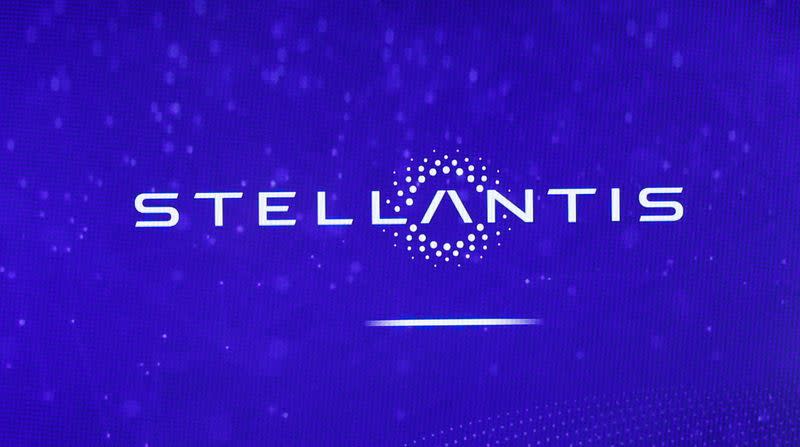Factbox-Stellantis: Why has Giorgia Meloni clashed with Fiat car maker?

ROME (Reuters) - The Italian government is open to buying a stake in carmaker Stellantis, industry minister Adolfo Urso said on Thursday, as he set out plans to provide 950 million euros ($1 billion) in subsidies this year to help drivers switch to cleaner cars.
The comments follows a clash between Italy's rightist government led by Prime Minister Giorgia Meloni and Fiat-owner Stellantis over production levels in the country.
Here is how the confrontation has played out.
ONE MILLION TARGET
Meloni's government has been in talks with Stellantis since last summer over a long-term plan which includes an increase in Stellantis' annual output in Italy to one million vehicles, to reverse a decline in national automotive output.
Fiat Chrysler, which merged with France's PSA in early 2021 to create Stellantis, last produced more than one million vehicles in Italy -- including passenger cars and light commercial vehicles -- back in 2017.
Stellantis' total output in Italy amounted to around 750,000 units last year -- and the figure was just under 750,000 in France.
In the late 1980s, when Fiat was in the ascendancy, Italy's annual automotive production stood at almost 2 million vehicles.
After risking bankruptcy in the early 2000s, former national champion Fiat moved on from its Italian origins, merging first with Chrysler in 2009, and then with Peugeot-parent PSA in 2021.
Now just one of Stellantis' 14 brands, Fiat has a reduced model line-up and for the first time in almost a century it was not Italy's top selling brand in December, losing the crown to Volkswagen.
THE 'SCANDAL' OF STELLANTIS
Meloni told parliament last week that Stellantis' management and owners had sometimes acted against the national interest, and described the birth of Stellantis as a de facto French takeover of the Italian auto industry.
In an apparent dig at Fiat, whose 600 mid-sized car is marketed as a product of the Italian "Dolce Vita" but is made in Poland, Meloni said, "If you want to sell a car.... advertising it as an Italian jewel, that car must be made in Italy."
In her 2021 political autobiography "I am Giorgia", she described the creation of Stellantis as a "scandal that jeopardises in Italy thousands of jobs and all the industries of the supply chain."
Fiat's founding family, the Agnellis, are Stellantis' single largest investors through their holding Exor. The Peugeot family and the French government are also among the group's largest shareholders.
SUBSIDIES SOUGHT
Portuguese-born CEO Carlos Tavares, who has made Stellantis one of the most profitable auto manufacturers, has said the group should produce only higher-end vehicles in countries such as France and Italy, moving production of cheaper, low-margin models elsewhere.
Stellantis has said it is committed to Italy, where it runs several plants including Cassino, Melfi and Pomigliano in the south, Mirafiori in Fiat's home city of Turin, and Atessa, Europe's largest van factory, in central Abruzzo.
Under a plan announced last year, it will produce some mid-sized models of its French DS and German Opel brands in Italian factories - a decision criticised by unions and politicians in France and Germany.
But the company said subsidies are key to support demand and thus production in Italy, especially for electric vehicles. It also called for lower energy bills and the postponement or cancellation of draft new Euro 7 emission rules.
"Italy is spending much less money than any other great European country to support EVs," Tavares said last week, adding that the approach was costing Italy in terms of lost output.
(Reporting by Alvise Armellini and Giulio Piovaccari; Editing by Keith Weir)

 Yahoo Finance
Yahoo Finance 